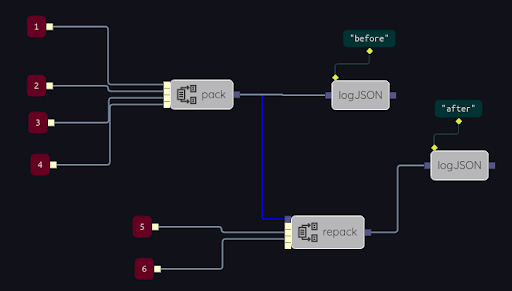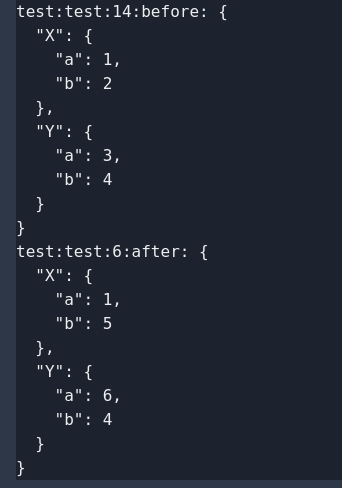repack

shown here with a tuple type that has four (possibly nested) slots.
| Name | Type | Description | Optional |
|---|---|---|---|
taken from tuple type |
taken from tuple type |
first slot of the nested input tuple |
yes |
taken from tuple type |
taken from tuple type |
second slot of the nested input tuple |
yes |
… |
|||
taken from tuple type |
taken from tuple type |
final slot of the nested input tuple |
yes |
| Name | Type | Description | Optional |
|---|---|---|---|
output |
?0 |
the tuple resulting from packing the slot inputs into the tuple type of the output |
no |
repack takes a nested input tuple, and an input value for each slot of the nested tuple. If a slot input port is unused, i.e., the input port is not connected to anything, then that slot of the input tuple is not modified; the original slot value is passed to the output. if the slot input is used, however, then it is assigned to that slot, overriding that slot in the input tuple. This is similar to the object.assign() operator in Javascript. See the example SpecialNodes/repack:

The result of running this example is as follows:

The highlighted link has been assigned the nested tuple type < <int a, int b> X, <int a, int b> Y >. This is a tuple of two elements. Each element is itself a tuple of two integers called a and b. The repack node takes a nested tuple of this type, and four inputs, one for each of its integer slots. Only two of the slot inputs are used. The values 5 and 6 from those two used inputs appear in the slots X.b and Y.a in the result.